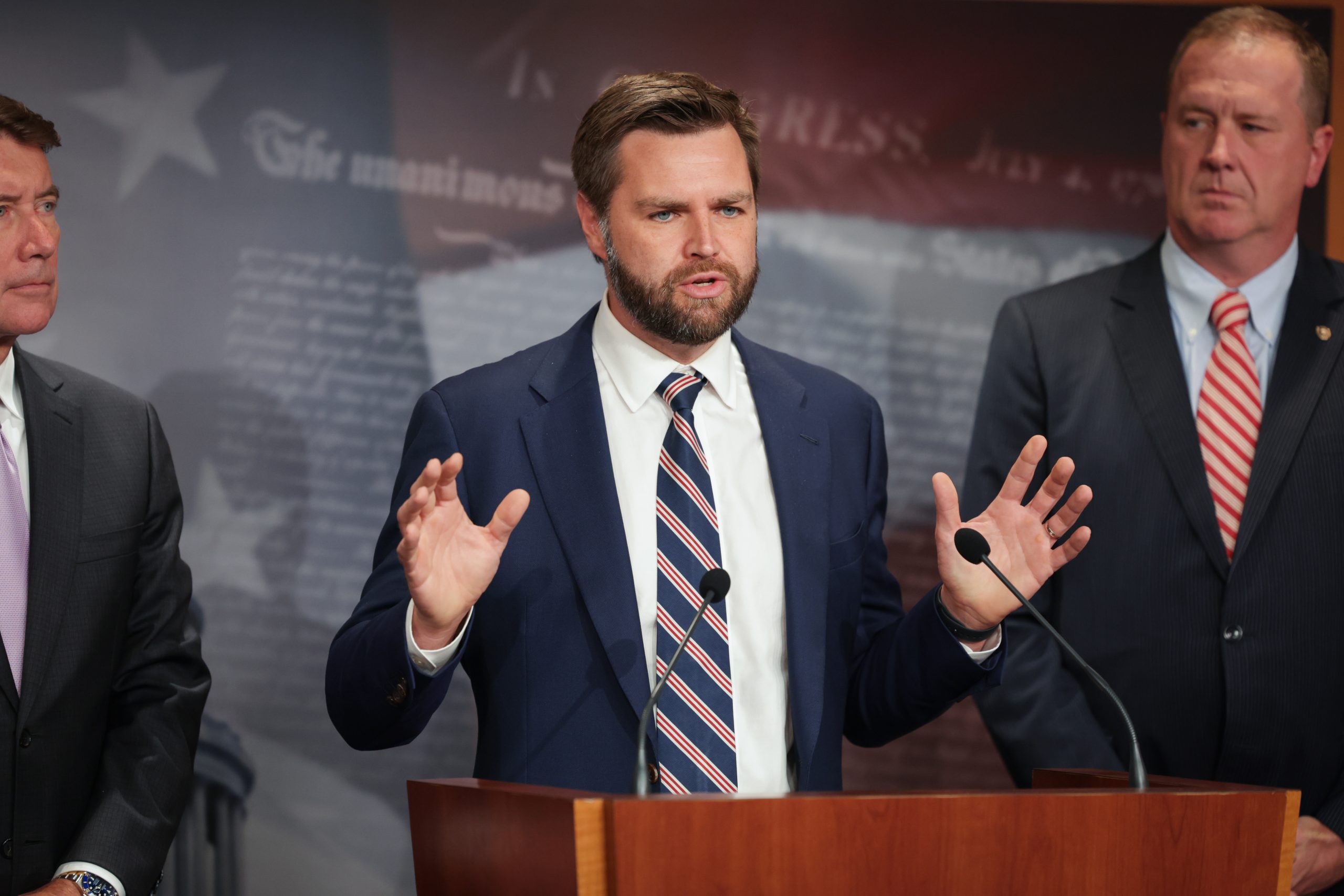“In private conversations with Senator Vance, you have indicated a bid spread of $20 billion. However, Senator Vance’s office has learned from government officials and industry leaders, who have purported to be privy to the auction process, that the final spread between JPMorgan’s bid and the next most viable bid was likely closer to $1 billion.”
WASHINGTON, D.C. – Senators JD Vance (R-OH) and Elizabeth Warren (D-MA) sent a letter to Martin Gruenberg, Chairman of the Federal Deposit Insurance Corporation (FDIC) regarding their concerns over the FDIC’s facilitation of the sale of First Republic Bank to JPMorgan Chase. The Senators also allege Chair Gruenberg misled Senator Vance regarding the spread of bids received for First Republic Bank.
Senators Vance and Warren requested transparency from the FDIC on a number of fronts, including the terms of bids received, the spreads between competing bids, the bids’ differing effects on the FDIC’s Deposit Insurance Fund, and the FDIC’s legal reasoning and market analysis regarding the accepting of bids for First Republic from institutions already exceeding the 10 percent nationwide deposit cap.
The Senators also urged Congress to pass Senator Vance’s amendment to the RECOUP Act, which would patch the Dodd-Frank created loophole for the 10 percent nationwide deposit cap.
The letter reads, in part:
“We write to you today regarding the May 1, 2023 purchase and assumption agreement that the Federal Deposit Insurance Corporation (“FDIC”) arranged in order to facilitate the sale of First Republic Bank, including $203 billion in assets and all of the failed bank’s deposits, to JPMorgan Chase.
“While First Republic’s executives—who failed to properly manage risk and hedge against rising interest rates as the Federal Reserve quantitatively tightened throughout 2022 and 2023—bear the primary responsibility for this failure, the actions undertaken to resolve the failed bank, and the later obfuscation surrounding the terms, are just as concerning.
“Not only did the seizure and sale of First Republic result in a $13 billion loss to the FDIC’s Deposit Insurance Fund (“DIF”)—which will be disproportionately borne by regional banks and their customers—federal regulators also utilized a legal loophole to ignore viable bids, and instead helped the nation’s largest bank grow even bigger …
“The FDIC has stated that the resolution of First Republic Bank “resulted in a transaction consistent with the least-cost requirements of the Federal Deposit Insurance Act,” and in private conversations with Senator Vance, you have indicated a bid spread of $20 billion. However, Senator Vance’s office has learned from government officials and industry leaders, who have purported to be privy to the auction process, that the final spread between JPMorgan’s bid and the next most viable bid was likely closer to $1 billion. If true, this would be concerning given that retrospective reviews of past bank resolution cost estimates have been found to be extremely imprecise – sometimes off by billions of dollars …
“As members of the Senate Committee on Banking, Housing, & Urban Affairs, we request that you promptly provide clarity surrounding the reasons for the FDIC’s decision, your following obfuscation, and answers to the following questions and requests for information, no later than December 22, 2023:
- Please turn over the details and terms of all purchase and assumption offers and final bids for First Republic, both successful and unsuccessful;
- Please provide the FDIC’s reasoning and legal rationale for accepting bids for First Republic from institutions already exceeding the 10 percent nationwide deposit cap while initially excluding those same institutions from putting forward offers for the purchase and assumption of SVB. Additionally, please include any market analysis conducted regarding the competitive impact to consumers from the resultant sale to JPMorgan Chase compared to other bids and offers from institutions falling below the 10 percent nationwide deposit cap.
- Please explain why you indicated to Senator Vance a $20 billion spread between bids;
- Was there another bid resulting in a spread closer to $1 billion?
- If the final bid spread was in fact closer to $1 billion, did the FDIC allow that bank with the next most viable bid a chance to provide a counteroffer against JPMorgan’s bid?
- While we do not know the details of the bids placed for First Republic, it has come to our attention that there may have been an initial offer that could have been less costly to the DIF than JPMorgan’s. It has also been communicated that the FDIC refused this offer, explaining that it was too complicated, and instructed the offering bank to resubmit their offer with new terms.
- If this is indeed true, could you please explain why this bid was too complicated?
- Regardless of the complex nature of said bid, please explain the FDIC’s reasoning for refusing to consider an offer that could have reduced taxpayer losses.”
The Senators’ letter to Chairman Gruenberg is available here and below. Read more in Politico’s Morning Money newsletter here.
###




